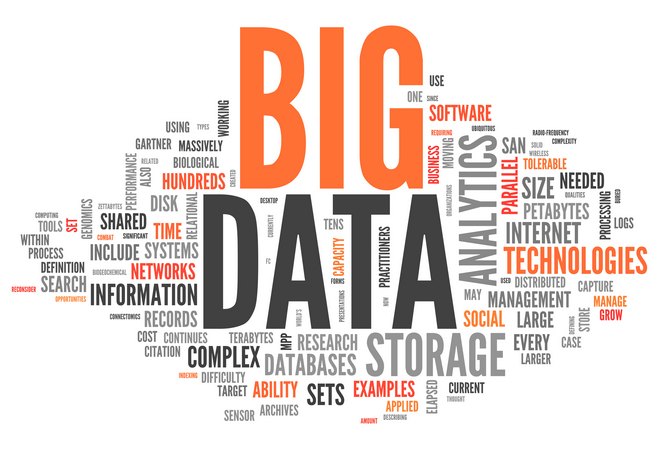The buzzword Big Data has gathered an increasing amount of momentum over the last few years. In fact the number of organisations who have implemented a big data or data discovery solution has increased from 58% to 73% over the last two years. More and more organisations have innovated to include a big data offering in their portfolio in an attempt to grab a slice of the proverbial pie. It can be very easy to get caught up in all of the hype surrounding big data, without actually understanding what it is. So let’s look at defining it… Research institution Gartner explains that big data is “high-volume, -velocity and -variety information assets that demand cost-effective, innovative forms of information processing for enhanced insight and decision making.” Unfortunately, this succinct definition can be a little vague, so let’s try to dissect the points. High-volume data refers to the ever-increasing amount of data that an organisation holds. Organisations are constantly expanding and new technologies are being innovated and then deployed. Leading to not only more data but data unable to communicate with each other, leaving analysts frustrated as they are unable to get a holistic view of organisational data. This makes sense when you compare it to the growth rate of data across the world over the last 5 years. A report by CSC shows that the amount of data produced globally is 10 times greater than it was in 2009 and is predicted to increase annually by 4300% by 2020. High-velocity data is data that is created at a rapid and sometimes real-time rate. As you can imagine, due to technological innovations, computer systems have been developed that create data faster with each passing year. As an organisation grows, the number of systems required for continue growth also increases. The amount of data this generates is huge. If leveraged correctly using an analytics solution, this new information can be used for real-time insights. An organisation’s data is high variety by nature, encompassing both structured and unstructured data sets often from multiple disparate data sources. While most organisations with an analytics solution are able to perform in-depth analysis on their structured data, their unstructured data is often left untapped… which is a big problem. You may find it surprising to know that according to a study by Forrester in 2012, “only 1 to 5 percent of all enterprise data is in a structured, modelled format that fits neatly into enterprise data warehouses.., and data marts.” These three aspects, whilst encompassed in the now buzzword “big data”, have actually been around for a lot longer. This is a fact noted by research analyst Phillip Howard of the Bloor Research Group, in his recent article he mentioned that CXAIR – a search-based business analytics solution created in 2006, “was a ‘big data’ solution before most of us had heard about big data.” From this, we can learn that in a world where buzzwords are often overused, it is important to decipher the true meanings from the fuzz. Of course, buzzwords can be a great thing – after all they essentially condense a number of wider topics into one word which can certainly aid when communicating to peers. The key is to not get caught up in the hype. Pre-emptively identify your requirements appropriately and ensure that the solution has the functionality necessary to fulfil those requirements.






